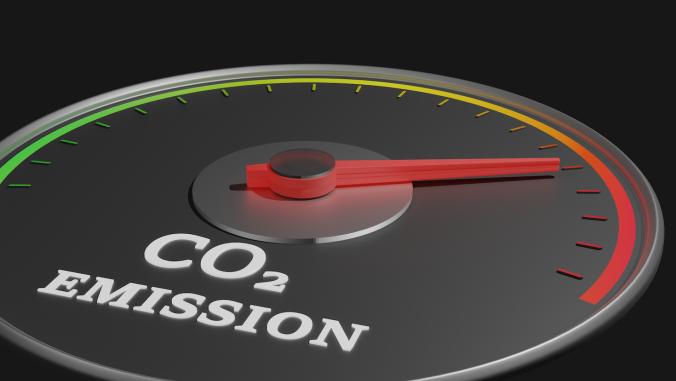Nothing is quite as humbling as the modern job search. For many of us, a lot of our identity and sense of self-worth is wrapped around the work that we do, which makes it really hard not to take rejections and ghosting personally. And that's doubly true for those of us who have chosen to work in sustainability because of the added emotional impetus driving us to devote our careers to combating the existential crisis of climate change. Combine that with a constant barrage of messaging highlighting the expertise and success of others on the news and social media, and it’s easy to fall prey to impostor syndrome, defined by Psychology Today as "a gnawing feeling of self-doubt and incompetence coupled with the dread of being exposed as a fraud."
But here’s the thing — everyone feels this way sometimes. The personal nature of my work means that I’ve been fortunate enough to have really honest conversations with thousands of job seekers, and the phrase "impostor syndrome" has come up in conversations with people at every level of seniority and at just about every type of organization you can imagine.. And if allowed to run wild, these feelings can keep incredibly smart, talented people from applying to that dream job or pitching that long-shot project idea.
Below are five ways that can help you quiet the little voice inside that says "I’m an impostor" so you can move past it and get to work. Because as you may have heard many times before, there’s not enough sustainability talent in the workforce right now to meet our goals. Not even close. We need you. You are not an impostor — you are a work in progress, as are we all. Please join us in our perfectly imperfect work trying to make the world a more sustainable place.
1. Adopt a new perspective
Many people experiencing impostor syndrome are coming from a fixed mindset where they see themselves as not up to snuff and they can’t envision that changing. When you shift to more of a growth mindset and start to view yourself as a learner on a lifelong journey, capable of growing into aspirational roles, gaining new skills and developing new expertise, you can begin to embrace yourself as the beautiful, imperfect work in progress that you are. Just like the field of sustainability, we’re all constantly changing and growing, and I doubt there will ever be a point that we, or our work, will ever be really "ready," "perfect" or "done."
2. Network with people in the same phase of their journey
Sometimes job seekers focus too much of their time trying to network with senior leaders and executives, and while it’s definitely important to make connections with decision-makers, it’s also important to connect with people at your own level of experience. If you talk exclusively with people who have decades more experience than you do, you won't walk away from those conversations feeling confident and capable.
Connecting with peers who are in the same phase of their sustainability career can help you to internalize the fact that you’re not alone on this journey as you explore and build confidence together. Work On Climate and Terra.do provide free access to their online communities with thousands of members helping one another to learn, connect and find jobs in climate. The EDF Climate Corps, Climatebase, Voiz Academy and the International Society of Sustainability Professionals (ISSP) also have amazing, active, supportive communities that you can join as a paid member or after completion of a fellowship or boot camp.
3. Remember that all of your heroes have an origin story
Peter Parker wasn't always up to fighting Doc Ock; he started out as an average nerdy kid who got picked on. Remember that all of the thought leaders you look up to who are posting great accomplishments on LinkedIn and making headlines in GreenBiz are real people who started somewhere, too.
Connecting with peers who are in the same phase of their sustainability career can help you to internalize the fact that you’re not alone on this journey as you explore and build confidence together.
If you’re lucky enough to get more than the typical 15-minute networking chat with someone who has been working in the sustainability space for a while, ask them about their personal journey and how their perspective and confidence has changed over time; you might be pleasantly surprised by how much you can relate to the stories they share. Open Door Climate is a great way to connect with experienced professionals who are interested in helping people to break into the space and are likely to be honest with you about their journeys.
4. Use learning to help you build confidence
Impostor syndrome often stems from feeling as if we don’t know what we’re talking about, and if you’ve ever felt out of your depth during a networking chat or in an interview, you understand this feeling well. The good news is, so much free information is available that this aspect of impostor syndrome is a fairly straightforward problem to remedy. If there’s a topic that is likely to be important to the work that you want to do and you wouldn’t feel comfortable holding up your end of a conversation on that topic, it’s time to do some learning.
All of the organizations I listed above as great for networking also provide tons of resources for learning about the different areas of sustainability. I also list some of my favorite formal training offerings in these articles on GreenBiz and among the hundreds of free resources on my website.
5. Nourish your internal monologue by writing a story that you believe in
There are a lot of options out there for the work that you could do in sustainability, but when you’re not sure about what you should do based on your experiences and interests, that lack of clarity can undermine your confidence during conversations with yourself and others.
The resources I list in tips 2-4 can help you to learn more about what jobs in sustainability are out there and how you best fit in. Use those experiences to develop a story about what you want to do and why that path makes sense for you. It’s even OK if your story includes a few challenges that you’ll need to overcome in order to get there, just as long as you plan to actively work on those challenges. Writing a clear story for yourself about where you’re going can change the way you feel about the direction you’re headed in, which can lead to more positivity in your conversations with others and in your internal monologue. If you need a little help with figuring out what direction to take your story in, you can try my self-paced course at ISSP, Target, Find and Secure a Career in Sustainability, which is designed to do just that.
Remember, the world of sustainability is wide, and there are a million ways that you can contribute. You have gifts that you can apply to this work, and everyone has to start somewhere. You are a work in progress. Focus on the activities that will build your confidence and the people that want to help you get to where you want to go, and you’ll be feeling like a valued member of the community in no time.
How about you? Have you ever experienced impostor syndrome while job searching or working? What helped you to work through those feelings? Please join the conversation on LinkedIn and share your thoughts — your story might be just the thing to help someone else along on their journey.






